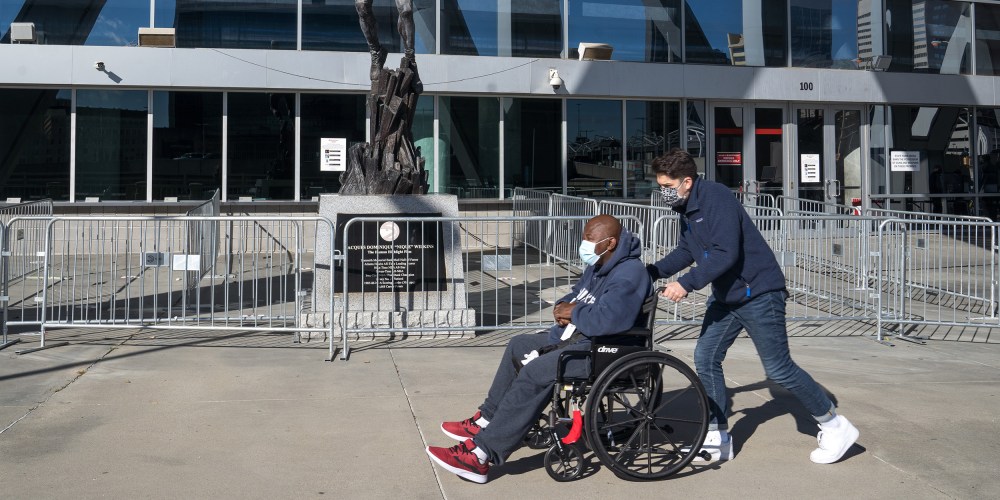When the Senate last week confirmed Judge Ketanji Brown Jackson to become the first Black woman to serve on the Supreme Court, many in the press rightly credited the moment to the 2021 elections of Georgia Sens. Jon Ossoff and Raphael Warnock, which gave Democrats control of the chamber.
As Republicans assaulted voting rights in state legislatures, people with disabilities predicted the new laws would hurt them, too.
Many have noted that Black, Asian and Latino organizers helped turn Georgia blue first for Joe Biden, then for Osoff and Warnock. The organizing efforts of people with disabilities and of groups such as the Georgia Disability Vote Partnership helped mobilize people with disabilities to vote, but their work is lesser known. Those disability rights activists were either directly involved in the Senate races or worked with organizations that maximized turnout among people with disabilities.
Much of the criticism of the voter suppression bills Republicans have been passing has, understandably, been focused on how those laws will hurt people of color. But as Republicans assaulted voting rights in state legislatures, plenty of people with disabilities predicted that the new laws would hurt them, too. Unfortunately, they have been proven right. People with disabilities have seen their ability to cast a ballot significantly curtailed.
During Texas’s primary election last month, Stateline has reported, many voters with disabilities reached out to Disability Rights Texas because either they had not received their mail-in ballots in time for the election or they had had their ballots rejected because of new signature and personal identification requirements.
The law requires that people who assist a voter with their ballot must fill out new paperwork that discloses their relationship with the voter and specifically prohibits people who accept compensation from providing assistance, which worries people with disabilities who require care workers to perform daily tasks. According to The Associated Press, the typical mail ballot rejection rate is around 2 percent but, during last month’s election in Texas, that rejection rate skyrocketed to around 13 percent.
It is a cruel irony that Texas Gov. Greg Abbott, who signed the legislation restricting disability enfranchisement, is himself a person with a disability. In fact, Abbott has spent his career weaponizing his disability against other people with disabilities. A new profile released this week in Texas Monthly refers to a claim Abbott makes in his 2016 memoir “Broken But Unbowed” about his time working as an attorney defending Houston’s bus company against personal injury lawsuits. He used the fact that he uses a wheelchair to argue against a person who used a cane who said he could not work. Later, as a justice on the Texas Supreme Court, Abbott helped gut medical malpractice law.

This is a far cry from the era of Houston Republicans like George H.W. Bush who signed the Americans With Disabilities Act. Abbott, who received a handsome settlement after a tree fell on him as he was running, has been able to live a good and fulfilling life — as all people with disabilities should. But he has spent much of his career trying to make life unnecessarily miserable for other people with disabilities.
But the rights of people with disabilities are not only being violated in Texas. When Florida Governor Ron DeSantis is not bullying LGBTQ+ people in schools or doing his best Donald Trump impersonation by picking a fight with Disney, he is passing a law that criminalizes anyone who delivers or even “physically possesses” more than two vote-by-mail ballots, excluding immediate family members, “including supervised voting at assisted living facilities and nursing home facilities.”













